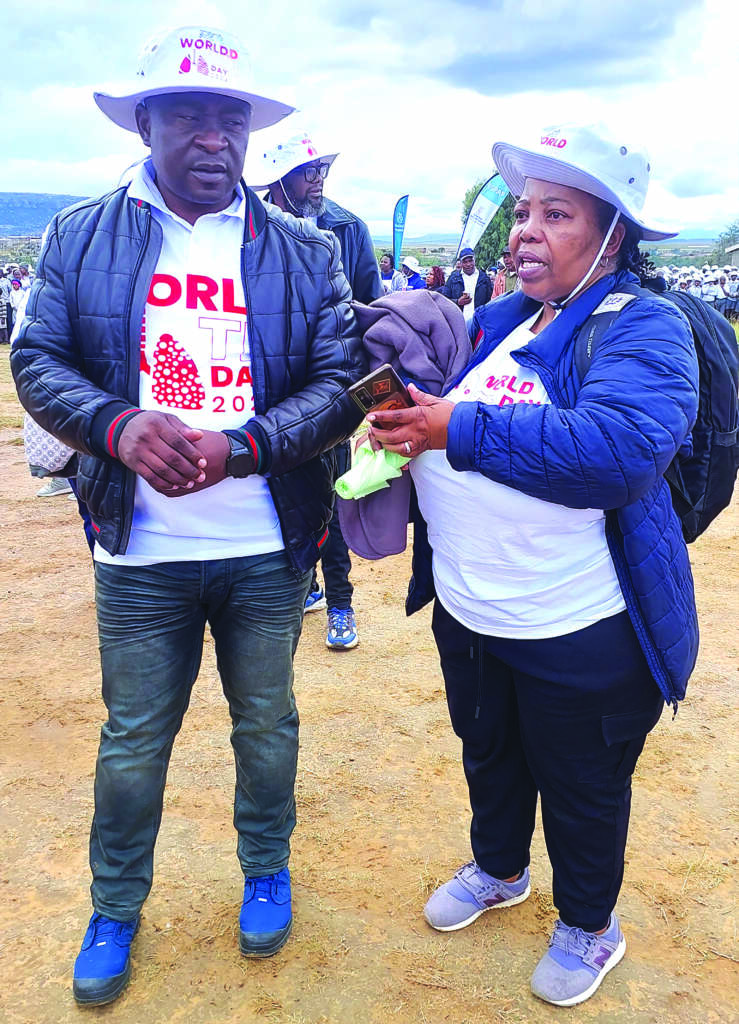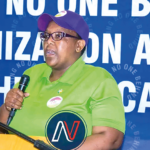Ntsoaki Motaung
Lesotho is grappling with a pressing health crisis as Tuberculosis (TB) continues to claim lives at an alarming rate.
The latest revelations from Dr. LLang Maama, the Tuberculosis Programme Manager, shed light on the dire situation facing TB patients in the country.
During a recent media briefing ahead of World TB Day, Dr. Maama issued a stark warning, revealing that a significant proportion of TB patients in Lesotho are dying while undergoing treatment.
She said it was important to bring to the attention of Basotho the harsh reality that many TB patients succumb to the disease even as they receive treatment.
The statistics presented by Dr. Maama paint a grim picture of the TB epidemic in Lesotho.
In 2022 alone, approximately 14 percent of TB patients lost their lives, obstructing efforts to achieve a 90 percent treatment success rate. Shockingly, over 15,000 Basotho fell ill from TB in the same year, with an incidence rate of 661 cases per 100,000 individuals.
. She underscored Lesotho’s continued status as one of the 30 highly burdened countries globally, with TB/HIV co-infection rates reaching a concerning 56 percent, as reported in the Global TB Report of 2023.
Dr. Maama highlighted that Lesotho’s target, as per the current and outgoing strategic plan, aimed for a treatment success rate of at least 90 percent for TB patients.
However, the reality for the cohort of 2022 fell short, with a treatment success rate of only 78 percent. Emphasising the urgency of the situation, she stressed the imperative to identify TB patients promptly and ensure they receive appropriate treatment.
Furthermore, Dr. Maama underscored the importance of early detection in combating TB. She highligted that TB is curable when detected early, highlighting the potential to effectively control the disease by reaching a large number of individuals with timely treatment interventions.
Minister of Health Selibe Mochoboroane acknowledged the persistent challenge posed by TB in Lesotho. However, Mochoboroane expressed satisfaction with the outreach achieved through the ministry’s integrated health services campaigns.
“The importance of finding patients lies in promptly initiating treatment and ensuring their monitoring until they are cured,” he stated.
He pledged the ministry’s commitment to continuing its aggressive six-month campaign, with a focus on screening various high-risk groups, including factory workers, mine workers, individuals engaged in large-scale projects, and those in hard-to-reach areas.
Additionally, densely populated areas such as bus stops will be targeted for screening efforts.
“When individuals are identified with TB symptoms, they will be promptly placed on treatment,” Mochoboroane assured. He reiterated the ministry’s determination to eradicate TB from the country, emphasising the embarrassment of Lesotho’s recurrent inclusion among countries burdened with high TB rates.
Partners In Health (PIH) reports a 77 percent cure rate for Multidrug-resistant TB (MDR-TB) attributed to new drugs.
Since its inception in 2007, PIH has been at the forefront of combating TB in Lesotho, launching the country’s first comprehensive treatment, care, and support program for MDR-TB and extensively drug-resistant TB (XDR-TB), a particularly severe strain of the disease.
At the heart of this initiative is the national TB program based at PIH-supported Botšabelo Hospital in Maseru. Botšabelo Hospital is dedicated to providing critical care and support to TB patients, particularly those requiring intensive monitoring.
The hospital offers an outpatient clinic and a nearby temporary housing facility, ensuring that individuals in need of extended care have a safe and supportive environment during their treatment journey.
In November, the World Health Organization (WHO) released the 2023 Global Tuberculosis (TB) Report, highlighting a significant global recovery in the scale-up of TB diagnosis and treatment services in 2022. The report indicates an encouraging trend, marking a reversal of the detrimental effects of COVID-19 disruptions on TB services.
According to WHO, the report encompasses data from 192 countries and territories. It reveals that in 2022, a staggering 7.5 million people worldwide were diagnosed with tuberculosis (TB), marking the highest figure recorded since WHO initiated global TB monitoring in 1995.
The notable increase in TB diagnoses is attributed to a significant improvement in access to and provision of health services across numerous countries. Encouragingly, countries such as India, Indonesia, and the Philippines, which collectively contributed to over 60 percent of the global reductions in newly diagnosed TB cases in 2020 and 2021, demonstrated remarkable recovery in 2022, surpassing the levels observed in 2019.

Your Trusted Source for News and Insights in Lesotho!
At Newsday Media, we are passionate about delivering accurate, timely, and engaging news and multimedia content to our diverse audience. Founded with the vision of revolutionizing the media landscape in Lesotho, we have grown into a leading hybrid media company that blends traditional journalism with innovative digital platforms.












